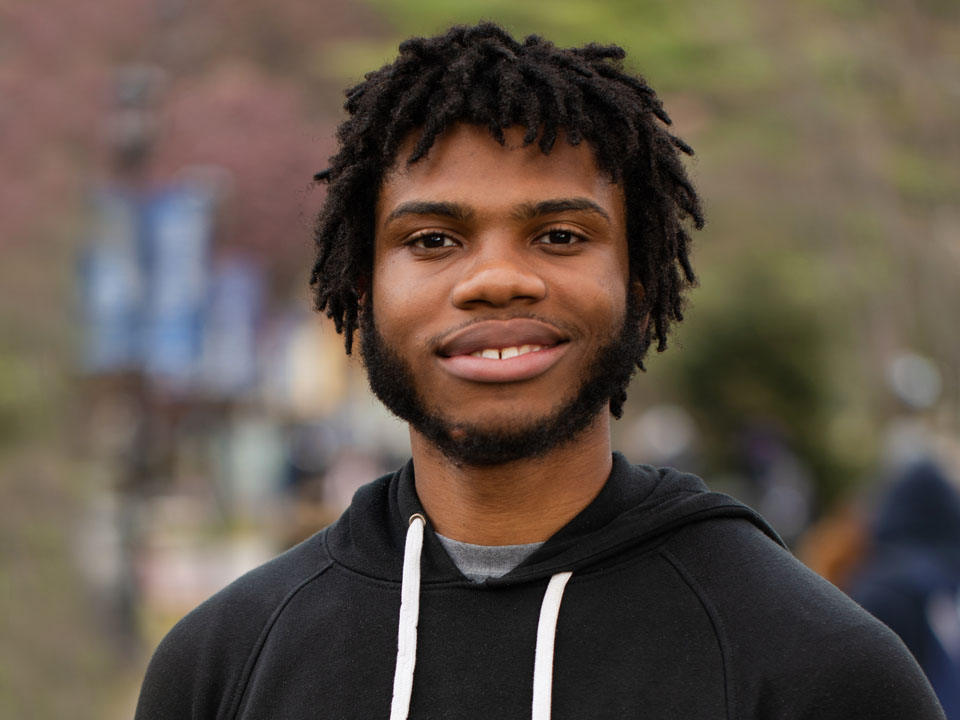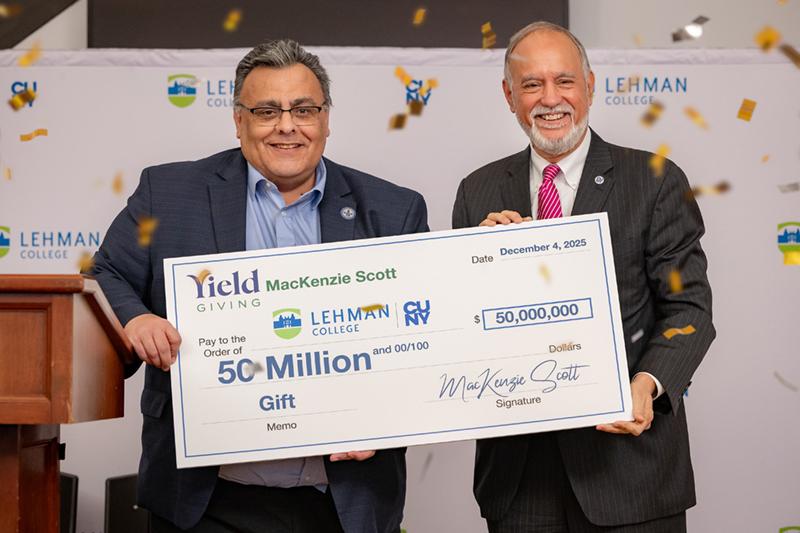- Lehman College >
- News >
- 2019 >
- A Drive to Succeed: Lehman Student Emeka Mbazor Ranks 4th in Nationwide Lyft Data Challenge
News
Search All News
Thursday, December 25, 2025
CONTACT
Office Hours
Monday - Friday 9am - 5pmClosed Sat. and Sun.
RELATED STORIES
December 18, 2025
Lehman Weekly December 14-January 3: A Fond Farewell to 2025
December 17, 2025
A Drive to Succeed: Lehman Student Emeka Mbazor Ranks 4th in Nationwide Lyft Data Challenge

Photo of Emeka Mbazor
November 20, 2019
Call it an unexpected "Lyft."
When Emeka Mbazor, a senior computer science major at Lehman, saw an announcement online for a data challenge geared toward students in their last two years of college, he figured he'd enter just for the experience.
The contest, the Lyft Data Challenge, was a new initiative by the rideshare app to highlight its use of data science and give talented students a chance to vie for a summer internship at the company along with other awards and prizes. Participants, who were required to enter in teams of two, completed an initial first round in September, with top scorers flown out to Lyft's headquarters in San Francisco to finish a final round last month.
Mbazor enlisted Harpreet Gaur, a City Tech student he'd met while interning at Microsoft last summer, as his teammate. Though the initial pool of 600 participants came from institutions across the country, Mbazor and Gaur were the only students representing The City University of New York schools. Still, they represented the university system well: In the end, their submission wowed Lyft officials, and they ranked among the top four teams.
As part of the challenge, Mbazor and Gaur poured over three months of driver statistics and questions based on the data, documented their analysis, and presented their findings. Their work required creating a machine-learning model, using 900 lines of code to process the data, and a five-page report.
"Data science is kind of an art," Mbazor said. After the coding and analysis, you have to figure out the story you want to tell and make sure that what's included in your presentation or report fits that narrative, he added.
Mbazor and Gaur were one of 16 teams to make it to the final round. That phase of the challenge, which was packed into a day-long event at Lyft's headquarters, was much more difficult, with tougher questions and less time to work on them. Although participants had a two-week deadline in the first round, finalists had only five hours to design an experiment, run it, and create a slide presentation of their work and results.
"It was crunch time," Mbazor said. The team finished with only 10 minutes to spare.
After the competition, finalists had an opportunity to network and engage with a panel of data and research scientists. "We got to ask them questions and get a better sense of what it's like working in the field," Mbazor said. "It was a great learning experience. I was like, 'Ok, if this was my job, I would like it a lot.'"
When the winners were announced, Mbazor and Gaur were surprised to find that they had ranked so highly.
"The competition was a great opportunity for me to use what I know," Mbazor said. "I didn't think I was going to win, I just thought '… I'm really proud of my work, I can put it on my resume, [and] I feel really good about my career prospects.' And then the validation came."
Finding the Right Path
Mbazor's path to data science was not a direct one. Although he was drawn to computer programming in high school, by the time he got to college, he was planning for a career in medicine.
"Initially, what got me interested in data science was that I conducted cancer biology research here," Mbazor explained. "I didn't like the benchwork so much, but I actually liked when I got to play around with the data and organize the findings. It was fun and interesting."
After enrolling in a biostatistics course that used data analytics, he was hooked. "I thought, I'm not really passionate about pre-med and this seems like a good fit, so I should make a transition."
His advisor, who noticed that Mbazor was succeeding in the course and seemed to enjoy it, supported his choice. She suggested he add the new data science minor, which is overseen by Elin Waring, the interim dean of the School of Health Sciences, Human Services and Nursing.
Although Mbazor did not have a computer science background, Waring was impressed with him. She admitted him to the program and became his mentor.
"Emeka is really passionate about data and always focused on learning new approaches to analyzing it," Waring said. "He is great about taking advantage of opportunities, whether that is enrolling in the data science methods and applications minor or going after great research and internship experiences."
What's next for Mbazor? Having switched his major to computer science late in his college career, he plans to stay an extra year at Lehman to complete his degree. Recently, he was accepted into the Tech Talent Pipeline program and is interviewing for competitive internships this spring and next summer, with six companies across the country.








